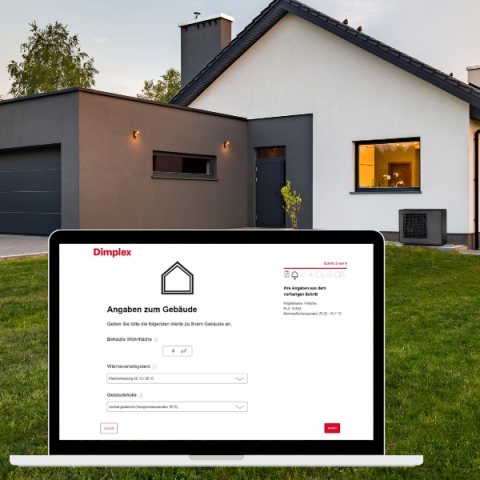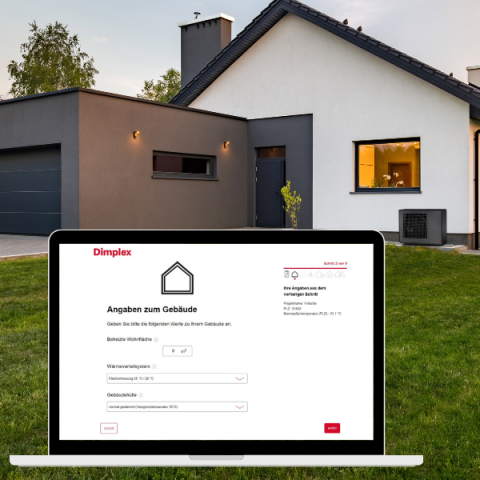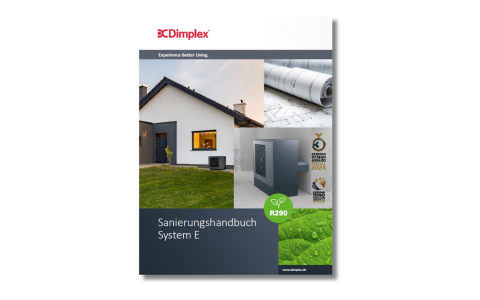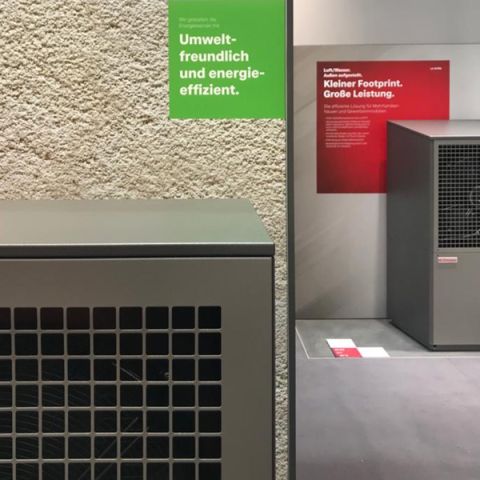AGB
Terms and conditions of sale and delivery
for the supply of machinery, plant and replacement assembly components
Last updated: 01/02/2025
1. General
1.1
erms and conditions of sale and delivery (“Terms and Conditions of Sale”) of Glen Dimplex Deutschland GmbH (“Supplier”) apply to all business relations with the Supplier’s customers (“Purchaser”). They shall only apply if the Purchaser is an entrepreneur (Section 14 of the German Civil Code (“BGB”)), a legal entity under public law, or a special fund under public law. They apply to all supplies of machinery, plant, and replacement assembly components (“goods”) and to other services to be provided by the Supplier in this context.
The following tThese Terms and Conditions of Sale also apply to future transactions with the Purchaser, even if they are not expressly agreed again.
Any terms and conditions of the Purchaser that conflict with or deviate from these Terms and Conditions of Sale of the Supplier shall not be recognised unless the Supplier has expressly agreed to their validity in writing. The Terms and Conditions of Sale shall also apply if the Supplier carries out the supply to the Purchaser without reservation in the knowledge that the Purchaser’s terms and conditions conflict with or deviate from these Terms and Conditions of Sale.
1.2
All agreements made in the contracts concluded between the Supplier and the Purchaser shall be set out in writing. Any deviating agreements made between the Supplier and the Purchaser must be set out in text form in the relevant contract and any supplementary agreements. All legally relevant declarations and notifications such as the setting of deadlines, reminders, declarations of withdrawal and notice of termination must be in text form.
1.3
The Purchaser has the non-exclusive right to use standard software and firmware with the agreed features in unmodified form on the agreed devices. The Purchaser may create a backup copy of the standard software without express agreement thereon.
1.4
Fulfilment of the contract is subject to the condition that it encounters no impediments pertaining to applicable German, US or any other national, EU or international foreign trade regulations, and is not subject to any embargoes or other sanctions.
2. Contract conclusion
2.1
Offers of the Supplier are subject to change and non-binding. The Purchaser has fourteen (14) days to accept offers from the Supplier.
2.2
If the Supplier has submitted a cost estimate to the Purchaser, this shall not constitute an offer. The Purchaser may make an offer based thereon, which the Supplier may choose to accept within fourteen (14) days of receipt.
2.3
Oral agreements shall become effective with the content of their confirmation in text form.
2.4
The documents and information provided by the Supplier, such as illustrations, drawings, weights and dimensions, shall only be binding if the supplier expressly lists them as part of the contract in the order confirmation or expressly refers to them in the order confirmation.
3. Prices and payment
3.1
In the absence of a special agreement, prices shall be EXW ex works of the Supplier (Incoterms 2020) including transport packaging plus the applicable VAT and shipping as well as customs duties and other taxes.
3.2
In the event of partial deliveries or services in accordance with Section 4.2, the Supplier shall be entitled to corresponding partial payments.
3.3
Value added tax (“VAT”) shall be shown separately on the invoice at the applicable statutory rate. In the case of supplies and services within the European Union, the Purchaser must provide its VAT identification number in good time before the contractually agreed delivery date as proof of its exemption from VAT. In the event of failure to provide this information in good time and in full, the Supplier reserves the right to charge the applicable VAT. In the case of supplies and services outside the European Union, the Supplier shall be entitled to charge the statutory VAT in arrears if the Purchaser does not send proof of export to the Supplier within one month of the respective dispatch.
3.4
Invoices shall be due thirty (30) days after receipt of the invoice by the Purchaser.
3.5
The Purchaser shall only be entitled to set-off and retention if its counterclaim is undisputed or has become res judicata. The assignment of existing claims against the Supplier to third parties requires the prior written consent of the Supplier.
3.6
If, after conclusion of the contract, there is a significant deterioration in the assets of the Purchaser which jeopardises the Supplier’s claim to payment, the Supplier may make performance dependent on advance performance by the Purchaser or the provision of security. The Purchaser shall be entitled to prove that the Supplier was already aware of this or should have been aware of it prior to the conclusion of the contract.
4. Terms of delivery, delay in delivery
4.1
The Supplier’s indication of delivery times shall be non-binding unless the Supplier expressly confirms the exact date of delivery or performance in writing.
4.2
Partial deliveries or services shall be permissible provided that they are reasonable for the Purchaser.
4.3
Compliance with the delivery time shall as a precondition require prompt receipt of all documents to be furnished by the Purchaser, the fulfilment of all obligations incumbent upon the Purchaser, such as the provision of necessary approvals and releases, as well as compliance with the agreed payment terms and other obligations. If this should not be the case, the delivery periods shall be extended adequately.
4.4
Compliance with the delivery period shall be subject to correct and timely delivery of supplies and materials. No liability shall be assumed for delays for which the Supplier is not responsible. The Supplier shall provide notification of impending delays as soon as possible.
4.5
The delivery period shall be deemed to have been complied with if the goods have left the Supplier’s works or notification of readiness for dispatch has been given by the time the delivery period expires. Should formal acceptance be required, the acceptance date shall be applicable or, alternatively, notice of readiness for acceptance – except in cases of justified refusal of acceptance.
4.6
If dispatch and delivery are delayed at the request of or due to default in acceptance by the Purchaser, the goods shall be stored at the Supplier’s premises at the Purchaser’s expense and risk. In this case, the risk shall pass to the Purchaser from the day of notification of readiness for delivery or acceptance. The Supplier shall be entitled to charge the Purchaser storage costs amounting to 0.5 per cent of the price of the goods forming the delivery for each calendar week month or part thereof, but not exceeding a total of 5 per cent. The parties shall be at liberty to furnish evidence of higher or lower storage costs as appropriate.
4.7
The Purchaser shall not sell, export or re-export, directly or indirectly, to the Russian Federation or the Republic of Belarus or for use in the Russian Federation or the Republic of Belarus any goods supplied under or in connection with these Terms and Conditions of Sale that fall under the scope of article 12g of Council Regulation (EU) No 833/2014 or article 8g of Council Regulation (EC ) No. 765/2006. The Purchaser shall ensure that third parties in the supply chain, including potential resellers, do not violate this obligation. The Purchaser shall establish and maintain reasonable monitoring mechanisms to detect any violations by third parties in the supply chain, including potential resellers. If the Purchaser breaches the obligations set forth in this Section, the Supplier shall be entitled to pursue its legal and/or contractual rights. In addition, the Purchaser shall be obliged to pay a contractual penalty to the Supplier for each culpable breach of an obligation under this Section. The amount of the contractual penalty is to be determined by the Supplier at its reasonable discretion and, in the event of a dispute, reviewed by the competent court. The Purchaser shall immediately inform the Supplier once it becomes aware of any potential issues in connection with the compliance with this Section, including any relevant actions of third parties in breach of the above obligation. Upon the Supplier's request, the Purchaser shall provide the Supplier with information on compliance with the obligations of this Section within two weeks.
5. Transfer of risk
5.1
The risk shall pass to the Purchaser as soon as the goods have left the dispatch point in the works or upon readiness for dispatch in the event of a delay in dispatch for which the Purchaser is responsible.
6. Reservation of title
6.1
The Supplier shall retain title to the goods until all claims against the Purchaser to which it is entitled under the business relationship at the time of conclusion of the contract have been satisfied in full. This shall also apply to any future claims that the Supplier acquires from the ongoing business relationship with the Purchaser. Prior to the transfer of ownership, the Purchaser is prohibited from pledging or assigning the goods as security and shall clearly mark the goods as being the property of the Supplier.
6.2
The Purchaser must treat the goods subject to retention with care. Maintenance and inspection work that becomes necessary shall be carried out by the Purchaser at its own expense. The Supplier shall be entitled to insure the goods subject to retention at the Purchaser’s expense against theft, breakage, fire, water and other damages unless the Purchaser has demonstrably taken out the insurance itself.
6.3
Resale is only permitted on condition that the Purchaser, as a reseller, carries out a resale in the ordinary course of business and that the reseller receives payment from its customer or agrees with the customer that title shall not pass to the customer until the customer has fulfilled its payment obligations.
The Purchaser hereby assigns to the Supplier by way of security all future claims against its customers arising from the resale, with all ancillary rights, including any balancing claims, without need of further specific assertion. Where the goods subject to retention are sold on together with other items, without agreement of an itemised price for the said goods subject to retention, the Purchaser shall assign to the Supplier the portion of the overall receivable price corresponding to the price of the goods subject to retention invoiced by the Supplier.
If the value of all security interests to which the Supplier is entitled exceeds the amount of all secured claims by more than 20 per cent, the supplier shall release an adequate part of the security interests if requested by the Purchaser. The Supplier shall be entitled to choose between different rights of security in relation to the release.
6.4
The Purchaser shall be authorised to collect assigned claims arising from resales until such authorisation is revoked. Where good cause exists – particularly in the event that payments are delayed or suspended, insolvency proceedings are opened or if there are similar, justified indications suggesting that the Purchaser is over-indebted or will be unable to pay – the Supplier shall be entitled to revoke the Purchaser’s authorisation to collect.
6.5
The Purchaser shall be permitted to process the goods subject to retention, or to combine or join them with other items. The processing shall be carried out for the Supplier and the Supplier shall immediately receive ownership or – if the processing is carried out from materials of several owners or the value of the processed items is higher than the value of the goods subject to retention – co-ownership of the newly created item in the ratio of the value of the goods subject to retention to the value of the newly created item. The Purchaser shall keep the newly created item for the Supplier with the diligence of a prudent trader. The new item shall be considered as goods subject to retention.
Where combination or joining with other items not belonging to the Supplier results in the creation of a new item, the Supplier and Purchaser hereby agree that the Supplier shall be assigned shared right of title to the new item in the amount of the value of the combined or joined goods subject to retention as a proportion of the value of the remaining goods at the time of combining or joining. The new item shall likewise be considered as goods subject to retention. The provisions of Section 6.3 shall likewise apply to the resultant goods subject to retention. The assignment shall, however, only apply to the amount which corresponds to the value of the processed, combined or intermingled goods subject to retention invoiced by the Supplier.
Where the goods subject to retention are combined with property or moveable assets, the Purchaser shall, without need of further specific assertion, also assign to the Supplier by way of security its claim arising as remuneration for the combination in the amount of the ratio of the combined goods subject to retention to the remaining combined goods at the time of combining.
6.6
The Purchaser must notify the Supplier without delay in the event of seizure, attachment or other dispositions or interventions by third parties. The Purchaser must promptly furnish the Supplier with all information and documentation necessary to assert its rights against the customer, where a justified interest is credibly established.
6.7
In the event of breaches of duty by the Purchaser, in particular in the event of default in payment, the Supplier shall be entitled to withdraw from the contract in addition to taking back the goods after the unsuccessful expiry of a reasonable deadline set for the Purchaser to perform. The statutory provisions on the dispensability of setting a deadline shall remain unaffected. The Purchaser shall be obliged to hand over the goods. The taking back of goods and assertion of the reservation of title or the pledging of the goods subject to retention by the Supplier shall not constitute a withdrawal from the contract unless the Supplier has expressly declared this.
7. Material defects
7.1
The Purchaser must inspect the goods immediately upon receipt in accordance with Section 377 of the German Commercial Code (HGB) and notify the Supplier of any obvious defects without delay. The same shall apply to hidden defects from the moment of their discovery.
All parts or services showing a material defect shall, at the Supplier’s discretion, be repaired, replaced or provided again free of charge, provided that the cause of the material defect already existed at the time of the passing of risk. The Supplier shall be given the opportunity to provide subsequent performance within a reasonable period of time. Notification of defects by the Purchaser must be made in writing without delay.
In the event of a replacement delivery for the purposes of subsequent performance, the Purchaser must return the delivered item.
If the Supplier is not willing or able to provide subsequent performance, in particular if this is delayed beyond reasonable periods for reasons for which the Supplier is responsible, or if subsequent performance fails in any other way, the Purchaser shall be entitled to withdraw from the contract within the framework of the statutory provisions. This shall not apply to insignificant defects. Such an insignificant defect shall be deemed to exist if the cost of remedying the defect does not exceed an amount of 5 per cent of the order value. In this case, the Purchaser shall only be entitled to a reduction of the contract price. Claims for damages shall be governed by Section 9.
7.2
The Supplier shall be entitled to demand reimbursement of the expenses incurred by it from the Purchaser if a notice of defect is unjustified.
7.3
There shall be no claims based on defects if there is only an insignificant deviation from the agreed quality, only an insignificant impairment of usability, natural wear and tear or damage that occurs after the transfer of risk as a result of incorrect commissioning, unsuitable or improper handling or use, excessive stress, natural wear and tear, improper maintenance, use of unsuitable operating materials, defective construction work, unsuitable building ground or due to external influences that are not provided for in the contract. This shall also apply in the event of nonreproducible software errors. In the event of changes to the goods made by the Purchaser without the prior consent of the Supplier or made by a third party, the warranty shall expire unless the Purchaser proves that there is no causality between the change made and the defect that has occurred. The same shall apply to defects attributable to a specification made by the Purchaser.
7.4
Claims for defects shall become statute-barred twelve (12) months after the statutory commencement of the limitation period.
8. Defects of title, intellectual property rights, copyrights
8.1
Should the use of the goods lead to the infringement of industrial property rights or copyrights in Germany, the Supplier shall, at its own expense, generally procure for the Purchaser the right to continue using the goods or modify the goods in a manner reasonable for the Purchaser in such a way that there is no longer any infringement of property rights.
If this is not possible under economically reasonable conditions or within a reasonable period of time, the Purchaser shall be entitled to withdraw from the contract. The Supplier shall also be entitled to withdraw from the contract under the abovementioned conditions. Furthermore, the Supplier shall indemnify the Purchaser against undisputed or legally established claims of the holders of the industrial property rights concerned.
8.2
Subject to Section 10, the Supplier’s obligations set out in Section 8.1 shall be conclusive in the event of an infringement of industrial property rights or copyrights.
They shall only apply if
a) the Purchaser notifies the Supplier without delay of asserted infringements of industrial property rights or copyrights,
b) the Purchaser supports the Supplier to a reasonable extent in its defence against the asserted claims or enables the Supplier to carry out the modification measures,
c) the Supplier retains the right to take all defensive measures, including out-of-court settlements,
d) the defect of title is not based on an instruction given by the Purchaser, and
e) the infringement of rights was not caused by the Purchaser modifying the goods on its own authority or using them in a manner not in conformity with the contract.
9. Liability
9.1
The Supplier shall be liable without limitation for intent and gross negligence. In the event of simple negligence, the Supplier shall only be liable and limited to the foreseeable damage typical for the contract if an obligation is breached, the fulfilment of which is a prerequisite for the proper performance of the contract and on the observance of which the Purchaser may regularly rely (cardinal obligation).
9.2
The above limitations or exclusions of liability shall not apply in the event of fraudulent concealment of a defect, from the assumption of a guarantee, for claims under the German Product Liability Act (ProdHaftG), or in the event of damage due to loss of life, bodily injury or damage to health.
9.3
To the extent that the Supplier’s liability is excluded or limited, this shall also apply to the personal liability of its employees, workers, staff, representatives and agents.
10. Use of software and documents, intellectual property, reverse engineering
To the extent that software or other intellectual property is included in the contractually agreed scope of supply, the Purchaser shall be granted a nonexclusive right to use the delivered software and other intellectual property, including its documentation. It shall be provided for use on the delivery item intended for this purpose. Use of the software on more than one system is prohibited.
All other rights to the software, documentation, and other intellectual property, including copies thereof, shall remain with the Supplier or the software supplier. Software may contain third-party software as components. The Purchaser shall not be entitled to separate individual components from software.
The Supplier reserves the property rights and copyrights to samples, cost estimates, illustrations, drawings, calculations, films, templates, slides, reproductions, tracings and other documents (hereinafter collectively referred to as “documents”); they must not be made accessible to third parties or used by the Purchaser for itself or for third parties without the written consent of the Supplier. This shall apply irrespective of whether they have been marked as confidential. Otherwise, the Supplier shall be entitled to claim damages, without prejudice to further rights.
To the extent that the scope of supply contractually owed by the Supplier includes documents, the Purchaser shall be granted a simple, non-exclusive right of use for use in connection with the respective goods. Any use for other purposes, in particular for reproduction, etc., is expressly excluded.
The Purchaser is prohibited from reverse engineering the goods, documents and other items received from the Supplier, such as by observing, examining, dismantling, testing or in any other way. The prohibition of reverse engineering shall not apply to goods already placed on the market or otherwise publicly available.
11. Confidentiality
11.1
For the duration of the business relationship and for a period of three (3) years thereafter, the Purchaser shall keep confidential the provisions of the contract and all information and content of documents relating to the Supplier’s business, products and trade secrets (“confidential information”).
11.2
The Purchaser may only disclose confidential information to third parties with the express written consent of the Supplier, with the exception of (a) its employees and professional advisers who are required to have knowledge of the confidential information for the purposes of the contract and are bound by law to professional secrecy and (b) public authorities within the scope of the statutory duty of disclosure. The Purchaser shall be entitled to disclose confidential information to authorised subcontractors, provided that the Purchaser imposes on such subcontractors a duty of confidentiality equivalent to the level of confidentiality set out in this Section.
11.3
The confidentiality obligations under this Section shall not apply to information that is or becomes generally known through no fault of the Purchaser, that is lawfully disclosed by a third party who was entitled to disclose such information, or that is independently developed without reference to the Supplier’s confidential information.
12. Place of performance, applicable law, place of jurisdiction
12.1
The place of performance shall be the Supplier’s place of business in Kulmbach, Germany.
12.2
The exclusive place of jurisdiction for all disputes arising from or in connection with this contract, including the validity of this contract, as well as noncontractual claims, shall be Bayreuth, Germany, unless a statutory mandatory place of jurisdiction applies. The Supplier may, however, at its option also bring an action before the courts having jurisdiction for the Purchaser’s place of business.
12.3
The contractual relations between the Supplier and the Purchaser shall be governed exclusively by the laws of the Federal Republic of Germany to theexclusion of the United Nations Convention on Contracts for the International Sale of Goods of 11 April 1980 (CISG).






